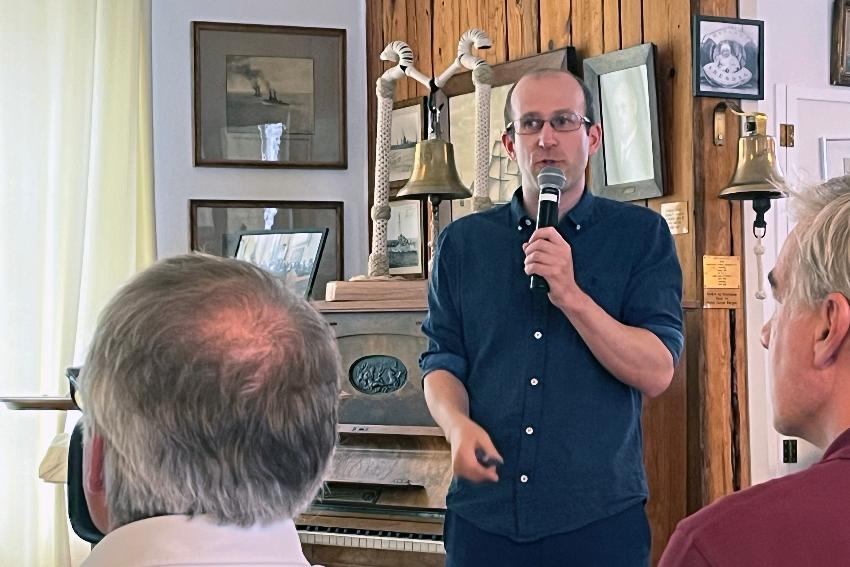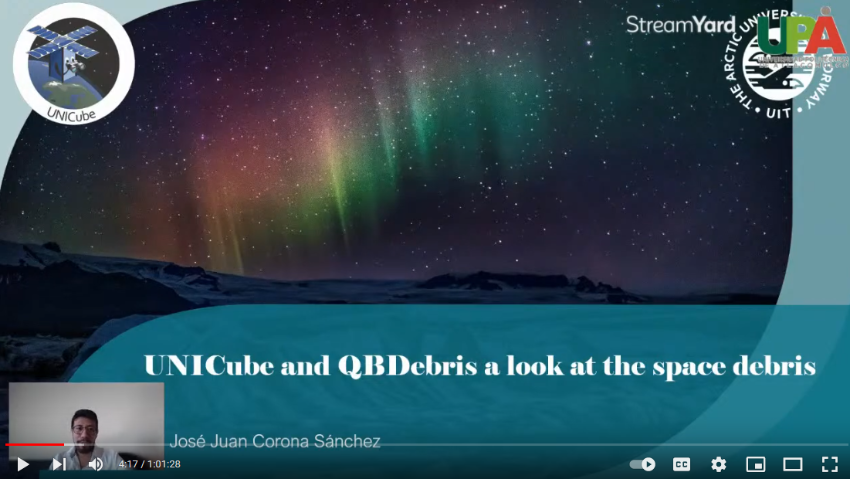Developing advanced scientific and technological solutions for measuring space debris in situ with commercial radars using a formation of CubeSats under coordinated control.
Near space has evolved over the last 70 years from being a frontier to a vital part of modern society. We depend on it in daily applications like telecommunications, positioning and remote sensing. With the significant increase in utilization of near space however, the challenge of space debris in orbit is also increasing. Debris stems from old satellites and rocket stages, satellite parts from collisions, breakups and anti-satellite weapon tests, with a size range from several tonnes and down to dust size particles. This debris routinely threaten satellites in orbit, resulting in costly avoidance operations or in the worst case loss of satellites or personnel.
QBDebris - A CubeSat formation for space debris characterisation
Program: Research council of Norway/FRIPRO
Project no.: 335832
Field of Action: Ground-breaking research
Partners: UiT The Arctic University of Norway, Faculty of engineering science and technology, Faculty of science and technology
Project period: 01.07.2023 - 31.12.2027
Budget: 13.3 MNOK
UiT project manager: Raymond Kristiansen
UiT affilliation:
Department of electrical engineering
Monitoring of space debris is carried out in two ways. Ground based radars can track larger pieces of debris, with the limit being a couple of millimeters in low earth orbit (LEO). Sub-millimeter particles have been studied by inspecting impact craters on returned space hardware such as shuttle windows, radiators and solar panels. This leaves the 1 mm to 3.2 mm range without any observations, meaning that models need to interpolate here. As particles as small as 0.1 mm can penetrate space suits, there is a need to improve our knowledge on these sizes. The ESA Space Debris Office estimated in 2022 that there are 330 million objects between 1 mm to 10 mm, one million larger than 1 cm. Only 30 630 objects of any size are currently tracked. Thus it is evident that there is a need for an active in situ measurement technique to characterise the debris smaller than 3.2 mm.
The QBDebris project aims to demonstrate the successful operation of a formation of two CubeSats capable of characterising space debris in situ. Once operational, the satellites will characterise and record the orbital elements of space debris smaller than the ground detection limit (3.2mm) using of the shelf commercial radars. Very little is known about these objects, even though there are millions of them in orbit, and they pose a significant risk for both astronauts and satellites. The satellites will be joined together to a size of 3U at launch, and once in orbit, split into two satellites which will maintain relative distance and orientation using novel control strategies. The CubeSats will be designed with actuators for reorientation (reaction wheels, magnetorquers), to be able to synchronize their attitudes to satisfy mission requirements. Orbital adjustments will be made by utilising differences in drag, depending on the spacecraft orientation, providing significant challenges to flight coordination.
On completion, the project will have demonstrated characterisation of small pieces of space debris in situ using off the shelf radars. The generated statistics of the orbital elements and density of debris will be very useful as input to space debris models, satellite operations and planinng of future satellite missions. In addition, the project will have shown that it is possible to coordinate orientation and maintain the relative position between satellites using a leader-follower scheme with attitude control actuators only.
The QBDebris project runs in parallel with the UiT student satellite project UNICube.
Maŋimuš ođđasat
The QBDebris project is funded by the Research Council of Norway through the Ground-breaking research (FRIPRO) program. FRIPRO is an open national competitive arena for all disciplines. FRIPRO funds basic excellent research where the ideas for projects originate with the researchers themselves.
[Loading...]


